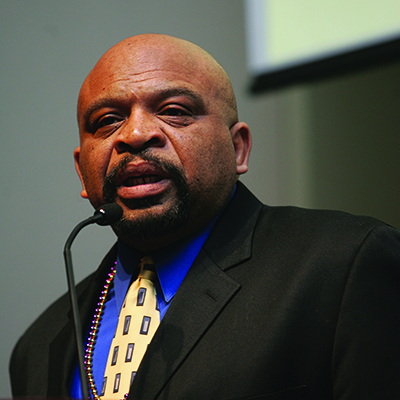The President's Column: It’s Time to Fight for What’s Right
June 15, 2022
We always have and we always will.

Dr. King’s views on economic justice have been largely whitewashed from the historical record. Despised by corporate America during his lifetime, this militant fighter for economic, racial and social justice has been neutered by the mass media and leading political figures into little more than a “dreamer.” A halfcentury after his murder, racist Senators now evoke Dr. King to lecture us about “color-blindness.”
In fact, here is Dr. King writing right after the Civil Rights Act and Voting Rights Acts had been passed: “The prohibition of barbaric behavior, while beneficial to the victim, does not constitute the attainment of equality or freedom. A man may cease beating his wife without thereby creating a wholesome marital relationship…. The future is more complex. Slums with hundreds of thousands of living units are not eradicated as easily as lunch counters or buses are integrated. Jobs are harder to create than voting rolls.
“Certain industries are based upon the supply of low wage, under skilled and immobile nonwhite labor…[But] our nation is now so rich, so productive, that the continuation of persistent poverty is incendiary because the poor cannot rationalize their deprivation.”
That was then. Fast forward to now and the situation is, if anything, worse. When Dr. King was alive, CEO pay averaged 30 times what their employees made; today, CEOs average almost 400 times their workers’ salaries. Four multibillionaires—who are called “oligarchs” in other countries— own more wealth than the bottom 55 percent of American workers.
In the two years of the COVID-19 pandemic, billionaire wealth has grown by two trillion dollars—this while unemployed and poorly paid workers, unable to afford rent, live in the streets and shelters of our cities.
Much of the heavy manufacturing industry and the well-paying union jobs of Dr. King’s time were gutted as corporations moved overseas where they could pay starvation wages to some of the poorest people on earth. Today, five decades later, there are 140 million poor and low-income people in the US. This amounts to 43 percent of the country’s population and 52 percent of our children.
To meet this crisis and this challenge, Bishop William Barber has called a Poor People’s and Low-Wage Workers’ Assembly— Moral March on Washington and to the Polls this month. Just like Dr King was in the 1960’s, Bishop Barber is a brilliant organizer, a visionary and a good friend of our union today.
The initiatives Bishop Barber has helped to start—the Moral Mondays series of protests he began in North Carolina and the Poor People’s Campaign— have motivated legions across the country to engage in demonstrations and peaceful civil disobedience in support of racial, economic and environmental justice as well as the protection of voting rights. He says: “Somebody in every age has to challenge this country to be true to its moral foundation in the Constitution, Declaration of Independence and our deepest religious values.”
“There are abundant resources to meet our needs, and we march to summon the political will to do so. It is time to nonviolently disrupt, protest, shake up and alter the direction of our nation towards love, truth, justice and equal protection under the law.
We march because any nation that ignores nearly half of its citizens is in a moral, economic and political crisis.”
This march is just the beginning. We stand alongside Bishop Barber and we are not stopping. Strap on your marching shoes.
1199 Magazine: May / June 2022

